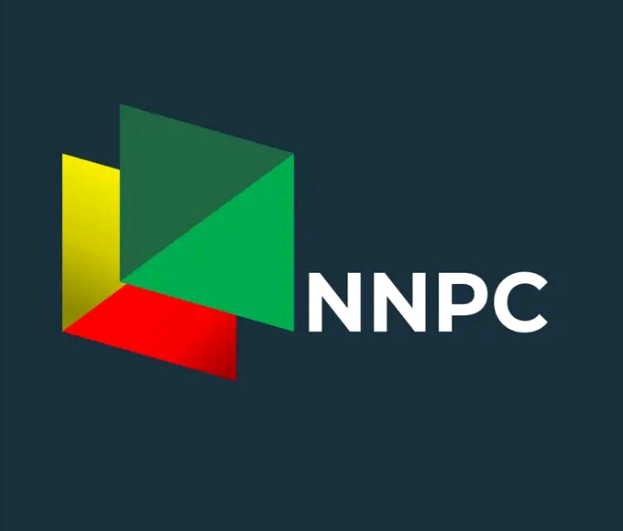News
Hope for Nigeria as FG eyes 1,268MW from new eight power plants

By Francesca Hangeior
There seems to be a ray of hope for Nigerians as the Federal Government reviees that it is expecting 1,268 megawatts of power from the concession and development of eight brown and green field hydropower projects constructed through public private partnerships.
It was gathered that three of the power projects were already given to concessionaires, while the Federal Executive Council had approved the concession of another of the power projects.
In a February 2024 document obtained from the Federal Ministry of Water Resources and Sanitation in Abuja on Friday by our correspondent, it was observed that while three of the hydropower projects had been completed, the remaining five were in various stages of completion.
The document was presented to the National Council on Water Resources and Sanitation at its 30th regular meeting by the Minister of Water Resources and Sanitation, Prof. Joseph Utsev.
The country has been struggling with poor power generation and supply, as electricity firms generate and distribute between 3,000MW and 4,000MW for a population of over 200 million people.
The abysmal electricity supply situation grew worse since January this year after suppliers of gas to gas-fired thermal power plants stopped supplying the product to the plants due to the $1.3bn debt of the electricity generating plants.
To ameliorate the crisis, the Federal Government has been investing in hydropower plants that do not use gas, but are run by water-powered turbines.
The water resources minister, in the latest presentation from his ministry, stated that there had been tremendous progress in the brown and green field hydropower development through public private partnerships.
“We have conclusively concessioned some projects while still developing others through various PPP models itemised as follows: concession of the 40MW Dadinkowa Hydropower Project in Gombe State. We have attained financial closure and the plant is operational, thereby, stabilising the transmission voltage of the North-East of Nigeria.
“Concession of the 30MW Gurara Hydropower Plant in Kaduna State up to financial closure and the plant, which is under rehabilitation will commence commercial operation in the third quarter of the year 2024.
“Concession of the 40MW Kashimbila Hydropower Plant in Taraba State. The Federal Executive Council approval has been secured, the concession agreement executed and the commencement fee paid by the concessionaire to the special concession account as approved by the Federal Ministry of Finance Budget and National Planning,” Utsev said.
News
Kyari in trouble as N/Delta youths vow to storm Abuja over failed promises on Port Harcourt refinery

…urge NNPCL Boss to resign
By Kayode Sanni-Arewa
Groups, under the aegis of Coalition of Niger Delta Youths Against Poverty, Insecurity & Environmental Degradation (CONDYAPIED), have expressed disappointment over failure of the Group Chief Executive Officer (GCEO) of the Nigerian National Petroleum Company Limited (NNPCL), Mele Kyari, to operationalise the Port Harcourt Refinery before the end of September, 2024, as promised.
The NNPCL Boss had severally assured Nigerians that the Port Harcourt refinery would start local refining and that prices of petroleum products would reduce drastically before the deadline of September 2024.
One month later, neither of the Port Harcourt, Warri or Kaduna refineries is functioning, safe for only Dangote refinery, as marketers still import refined petroleum into the country, thereby causing serious hike in the price of the products.
A press statement on Sunday, jointly signed by Engr. Jonas Igariga, Coordinator of the Coalition, and Comrade Jack Opobo, General Secretary, the Coalition called on Kyari to tender his resignation letter and apologize to Nigerians.
“In a sane society where leaders have conscience, the likes of Mele Kyari should burry their heads in shame and tender their resignation and apologies to Nigerians for plunging the entire nation into untold hardship”, the Coalition said.
The Coalition averred that, inspite of huge funds injected into the Port Harcourt refinery, Kyari prefers importation of refined products, to making local refinery operational, despite his many promises.
“The NNPCL GCEO has failed Nigerians, times without number, on the issue of Port Harcourt, Kaduna and Warri refineries, after blowing over 3 billion dollars on the project. It has been discovered that Mele Kyari and his goons have no plans to fix any refinery as they prefer to import adulterated products into the country and milk the citizens dry.
“NNPCL cabal and their importers are deliberately sabotaging the good intentions of President Tinubu by making sure there are queues and Nigerians buy the product at any price fixed and given to them by the oil Lords. We shall not fold our hands and allow this to happen”, the statement added.
According to the statement, several warnings had gone to Kyari in the past, to fulfill his promise by making sure the Port Harcourt refinery became operational in September; but to no avail.
“We read the statement signed by the Coalition of Niger Delta Youth On Energy Reforms and Transparency in the Oil and Gas Sector, urging Kyari to ensure that the Port Harcourt Refinery became operational before the end of September as he promised.
“The group expressed concern about the energy crisis in the country caused by the non-functionality of local refineries, continued dependence on the importation of petroleum products, and the resulting cost implications for the country.
“They noted that the failure of NNPC has further worsened the country’s energy crisis and impoverished the people of the oil-producing Niger Delta.
“The group alleged that the Port Harcourt refinery is being planned to be converted into a blending plant. They claimed that substandard petroleum products from Russia will be mixed with chemicals and sold to the people of the Niger Delta.
“This is basically our fear too. We at the CONDYAPIED are not only concerned about the corruption going on at the NNPCL, but we are grately worried over the plan to convert the Port Harcourt refinery to a mere blending plant. We shall resist this with all our might. We shall shut down Abuja in protest, in the coming weeks, and occupy the NNPC towers until the needful is done.
“We will not allow our refinery to be converted to blending plant, because we are aware of the potential environmental degradation and terrible impacts on our people. This move could expose the people of Niger Delta to harmful chemicals from environmental pollutions and degradation caused by the waste products released into the environment, if it is allowed”, the Coalition submitted.
News
Just in: Gunmen Abduct Road Safety Agency, FRSC Official In Enugu, Demand N50Million Ransom

By Kayode Sanni-Arewa
Gunmen in Enugu have kidnapped an official of the Federal Road Safety Corps (FRSC), Emeason Chima.
Chima, who is attached to RS4.211, Ugbokolo unit of the agency, was kidnapped on Saturday around Maduka University in Nsukka, Enugu State.
The gunmen are demanding N50 million ransom to release the victim, a senior FRSC official in the state revealed.
The official who wasn’t authorised to speak to journalists said Chima was driving alone in his car when he was attacked and abducted.
Meanwhile, an internal memo within the agency confirmed that the gunmen – using the officer’s phone -demanded for a ransom of N50 million.
“The Command Is In Receipt Of Information About The Kidnap Of SRMA Emeason Chima,” Emmanuel Al-Hassan, Ugbokolo unit commander said in the memo.
“Place Of Incidence: After Maduka University, Nsukka Enugu Road through OPI junction, in Enugu State. Information extracted so far confirmed that the staff was driving alone in a Toyota saloon car when he was kidnapped.
“The unit commander has already been contacted by the kidnappers using the staff phone, where a demand of 50million ransom has been made.
“Further details will be made available as events unfolds. This is forwarded for your information and further guide sir.”
Security has deteriorated in the South-East part of the country with frequent attacks by non-state actors in recent times.
The gunmen have carried out a series of abductions, collected huge ransoms and in some occasions killed their victims.
Aside from government officials and facilities, military and police personnel and others have been targets of attacks by these gunmen in the region.
The Nigerian government has accused pro-Biafra group, Indigenous People of Biafra (IPOB), of being responsible for the deadly attacks in the region.
But the group has repeatedly denied its involvement in the attacks.
News
NNPC Update on Helicopter Crash: No Additional Bodies Recovered

By Kayode Sanni-Arewa
The NNPC Ltd. wishes to announce that beyond the three bodies found in the ill-fated helicopter operated by East Winds Aviation that crashed on Thursday in Port Harcourt, no other bodies have been recovered.
The Company further notes that intensified search and rescue operations for the remaining bodies along with relevant authorities is still ongoing
Once again, our hearts and prayers are with family members of this unfortunate incident.
Olufemi Soneye
Chief Corporate Communications Officer
NNPC Ltd.
Abuja
-

 News9 hours ago
News9 hours agoAngry presidency says The Guardian trying to incite Nigerians
-

 News15 hours ago
News15 hours agoReps Say Dichotomy Btw HND, Degree Will Be Eliminated
-

 News23 hours ago
News23 hours agoRivers Assembly Battle: Plot by Gov Fubara to unleash mayhem exposed
-

 News23 hours ago
News23 hours agoOur Zone Will Not Vote APC In 2027 Elections, We Are Now Wiser — Gov Makinde
-

 News23 hours ago
News23 hours agoREVEALED! Major reason some leaders want Damagum out exposed as PDP group insists it’s about 2027
-

 Metro8 hours ago
Metro8 hours agoEXPOSED! Officer who k!lled Ogene musician, Igbo Jah
-

 Entertainment9 hours ago
Entertainment9 hours agoPolice probe viral video released by VDM featuring their uniform
-

 Opinion8 hours ago
Opinion8 hours agoCBN: THE DIASPORA EXPLORATION








